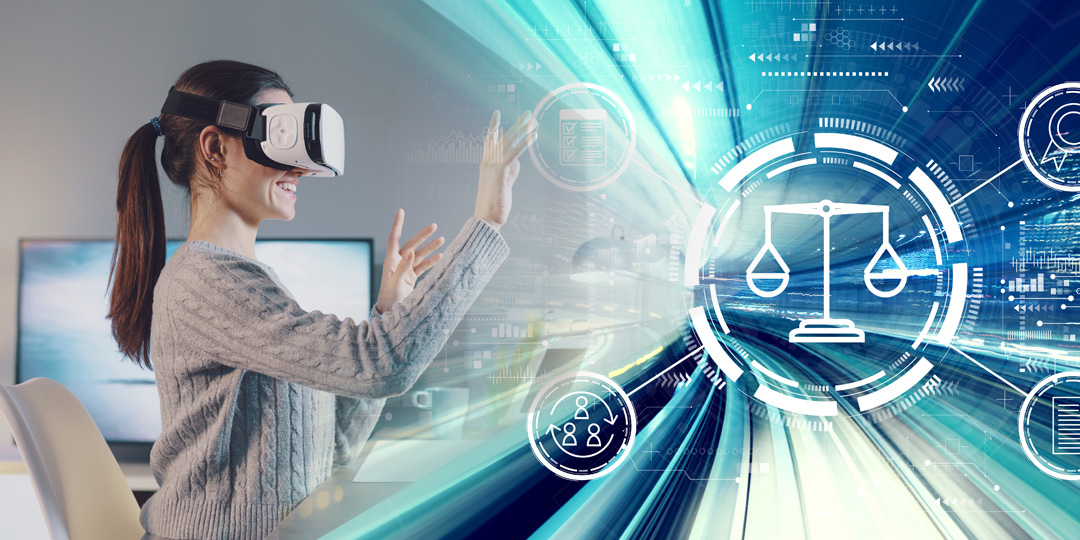Navigating Legal Aspects in Metaverse Development

Embarking on the Metaverse Journey: Navigating Legal Considerations
The burgeoning development of the metaverse brings forth a realm of possibilities and challenges, especially in the legal landscape. As developers immerse themselves in creating virtual worlds, understanding and addressing the legal considerations become paramount.
Defining the Metaverse and Legal Ambiguities:
The metaverse, a collective virtual shared space, is gaining traction in various industries. However, its definition remains fluid, leading to legal ambiguities. Clear legal frameworks are crucial to navigate issues of ownership, intellectual property, and jurisdiction in this dynamic space.
Intellectual Property in Virtual Realms:
As developers create unique assets within the metaverse, questions of intellectual property rights arise. Legal considerations encompass protecting original content, addressing virtual asset ownership, and defining the boundaries of copyright, trademarks, and patents in these immersive digital environments.
Virtual Currency and Financial Regulations:
The metaverse often involves the use of virtual currencies for transactions within virtual economies. Legal frameworks must grapple with the classification and regulation of these digital currencies, addressing issues such as taxation, money laundering, and fraud prevention in the metaverse’s financial landscape.
User Privacy and Data Protection:
With the gathering of vast amounts of user data within the metaverse, privacy concerns become paramount. Legal considerations involve defining and enforcing robust data protection measures, obtaining user consent, and addressing potential breaches to ensure a secure and trustworthy virtual environment.
Emerging Digital Identities and Authentication:
Metaverse development introduces the concept of digital identities, raising questions about authentication and security. Legal frameworks must evolve to establish standards for user identity verification, protection against identity theft, and ensuring the authenticity of digital personas.
Virtual Real Estate and Property Rights:
In the metaverse, virtual real estate holds significant value. Legal considerations extend to defining and protecting property rights within these digital spaces. Developers and users alike require clear guidelines on ownership, leasing, and transfer of virtual properties.
Content Moderation and Community Guidelines:
As virtual communities flourish in the metaverse, content moderation becomes a legal imperative. Establishing community guidelines, addressing hate speech, and managing user conduct present challenges that legal frameworks must navigate to maintain a safe and inclusive virtual environment.
Jurisdictional Challenges in the Metaverse:
With users participating globally, defining jurisdictional boundaries in the metaverse becomes intricate. Legal considerations involve clarifying which laws apply, resolving cross-border disputes, and ensuring that metaverse developers comply with international regulations.
Liability and Accountability in Virtual Environments:
As interactions in the metaverse mimic the real world, questions of liability and accountability emerge. Legal frameworks must delineate responsibilities for user actions, platform behavior, and address issues like virtual property damage or harm caused within the digital space.
Educational Initiatives for Metaverse Legal Literacy:
Given the evolving nature of the metaverse and its legal considerations, education is key. Legal professionals, developers, and users need to be well-versed in the legal landscape of virtual environments. Initiatives for metaverse legal literacy are essential to ensure informed and responsible engagement.
In conclusion, the metaverse offers a thrilling frontier for innovation, creativity, and collaboration, but its development must be accompanied by robust legal frameworks. For a deeper dive into Legal Considerations in Metaverse Development, explore StarMountainResources.com.
As the metaverse unfolds, legal considerations play a pivotal role in shaping its trajectory. Balancing innovation with ethical and legal responsibility ensures a vibrant and sustainable metaverse that fosters creativity, community, and inclusivity.






